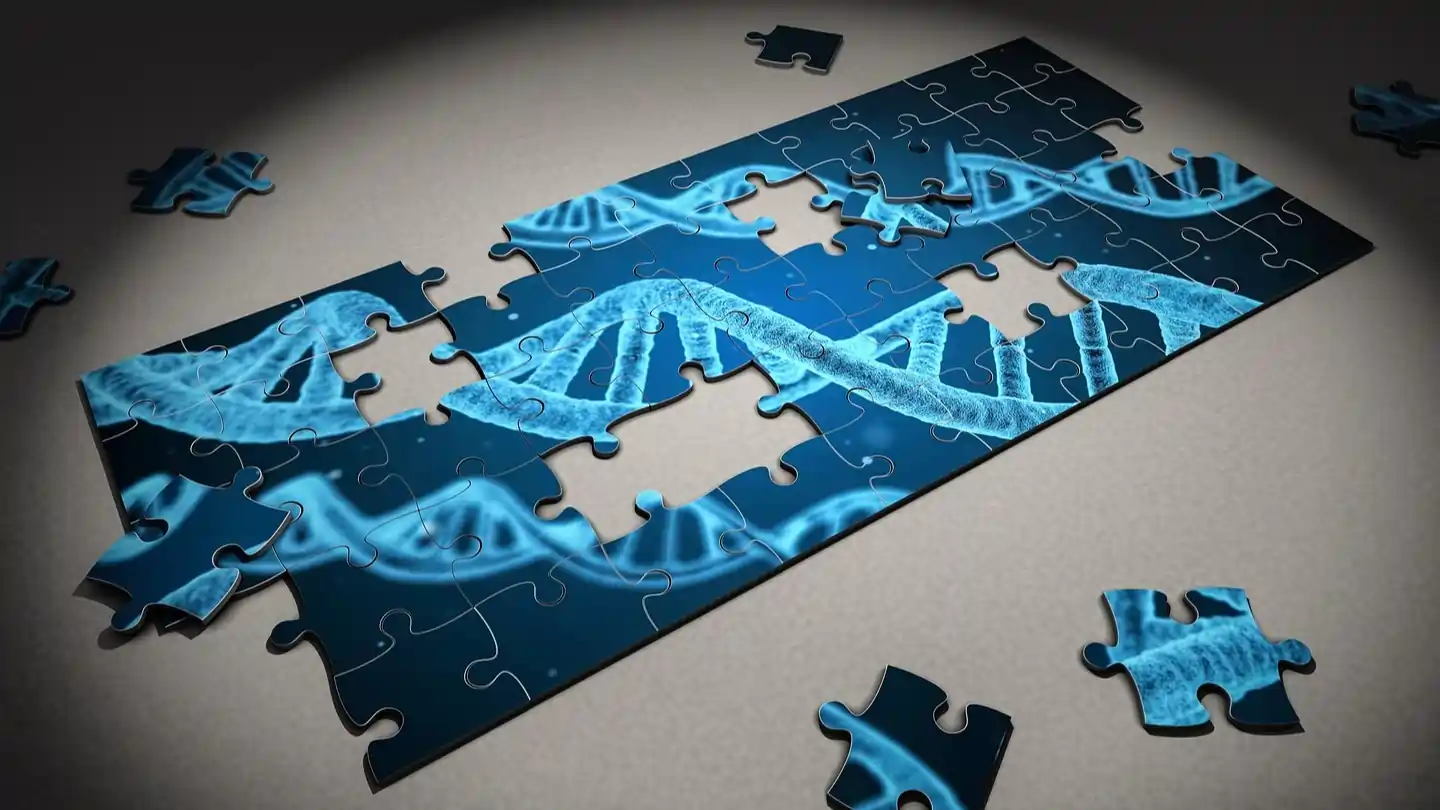Introduction
Let’s be honest. The word epigenetics sounds like something out of a science fiction movie. It’s big, it’s confusing, and most people hear it once and immediately go, “Uh… what now?”
But here’s the truth: epigenetics isn’t just for scientists in white coats or people who love biology. It’s about you. Your body. Your life. And believe it or not, it’s one of the most exciting, empowering fields in science today.
So, if you’ve ever wondered what is epigenetics, you’re in the right place.
What Is Epigenetics?
Alright, let’s start simple.
You know how you’re born with DNA, right? That long, twisty, beautiful code made up of genes from your parents?
Well, think of your DNA as the script of a play. It has all the lines, all the scenes, all the instructions your body needs to function.
But here’s the kicker: not all of your genes are always “on.” Your body doesn’t read every line of that script all the time.
That’s where epigenetics comes in.
So, what is epigenetics?
It’s the study of how your lifestyle, environment, and even emotions can turn your genes on or off—without changing the actual DNA.
In other words, your genes are the blueprint, but epigenetics is how your body decides which parts to read, skip, highlight, or mute.
Your DNA stays the same. But your body’s use of that DNA? That’s where things get really interesting.
How Does Epigenetics Work?
You might be wondering, “Okay, but how does epigenetics work exactly?” Let’s break it down with something totally relatable: light switches.
Imagine your genes as the lights in a huge building. Every room has a light. But someone (your body) decides which rooms to light up, and which ones stay dark. That “someone” is epigenetics.
Now technically, epigenetics and genes interact through chemical processes that tag your DNA or the proteins around it. These tags act like sticky notes saying, “Hey, read this!” or “Skip this part.”
Here are the 3 big players in how epigenetics works:
- DNA Methylation
This is like putting a “do not read” sticker on a gene. It silences it. The gene is still there, but your body ignores it. - Histone Modification
Picture DNA wrapped around little spools called histones. If the spool is tight, the gene is hidden. If it loosens, your body can read it. Epigenetics adjusts the tightness. - Non-coding RNA
Think of this as background crew telling your body how to interpret the script. They help regulate which genes are used and when.
Epigenetics and Your Life
Here’s where it gets real. It’s not just some abstract concept locked in a lab. It’s happening inside you, right now.
Every time you sleep well, go for a walk, eat a salad, or laugh with a friend—you’re affecting your epigenetics.
And the same goes for stress, poor sleep, trauma, pollution, or even loneliness. All of it sends messages to your body about which genes to activate.
So when people ask what is epigenetics, I say this:
It is how your body listens to your life.
And based on what it hears, it decides what to do with your genes.
This explains why two people with similar genetics can age differently, develop different illnesses, or have very different mental health outcomes. Because while our genes set the stage, our epigenetics directs the play.
Epigenetics and Inheritance
Now here’s where it gets wild. Some epigenetic changes may be passed down from your parents—or even grandparents.
Let’s say your grandfather went through extreme stress during war or famine. That experience may have changed the way his genes were expressed. And some of that change? It could be passed to you.
This doesn’t mean you inherit trauma. But it does mean you might inherit a body that’s been primed to react to the world in a certain way. Scientists are still studying how deep this goes, but the possibilities are astonishing.
Same DNA, Different Lives
One of the coolest examples of epigenetics and genes in action? Identical twins.
These twins have the exact same DNA. But as they grow older, live different lives, eat different foods, experience different stress—guess what?
Their epigenetics changes. One twin might get a disease, while the other doesn’t. One might age faster. One might react to trauma more intensely.
The genes are the same. But how those genes are used? Totally different.
The Future is Here
Now let’s talk science meets hope.
Doctors and researchers are using epigenetics to understand—and maybe even treat—some of the most challenging diseases we face.
Cancer
In many cancers, genes that should be “off” are accidentally turned “on.” Or vice versa. By studying how it works, doctors can create drugs to reverse those changes.
Mental Health
Depression, PTSD, anxiety—they’re not just in your head. They often involve real changes in gene expression. Epigenetic research is helping explain how trauma leaves a mark—and how we might heal it.
Aging
Scientists are exploring how epigenetic changes speed up or slow down aging. There’s even talk of “epigenetic clocks” that estimate your body’s age more accurately than your birth date.
Myths About Epigenetics
- Myth: It changes your DNA.
Fact: It changes how your DNA is read, not the sequence itself. - Myth: You can “cure” diseases overnight by thinking positive.
Fact: Your mindset affects epigenetics, but it’s one piece of a big puzzle. - Myth: If something bad happened in your family history, you’re doomed.
Fact: Epigenetics is dynamic and reversible. You are not your past.
Conclusion
In the end, our bodies are constantly listening to the lives we lead. The way we eat, move, rest, connect, and even think sends powerful signals that shape how we function and feel. We’re not just passengers in our health journey—we’re active participants.
Each small choice we make can leave a quiet, lasting impact, reminding us that our everyday habits matter far more than we often realize.
Must Read:
- Everything About Atoms Explained
- Everything About Human Eyes
- Mars Colonization: Elon Musk’s A to Z Plan
- Can We Control Weather? What Is Cloud Seeding?




